iPhone vs Android: Let’s Settle This Argument for Good
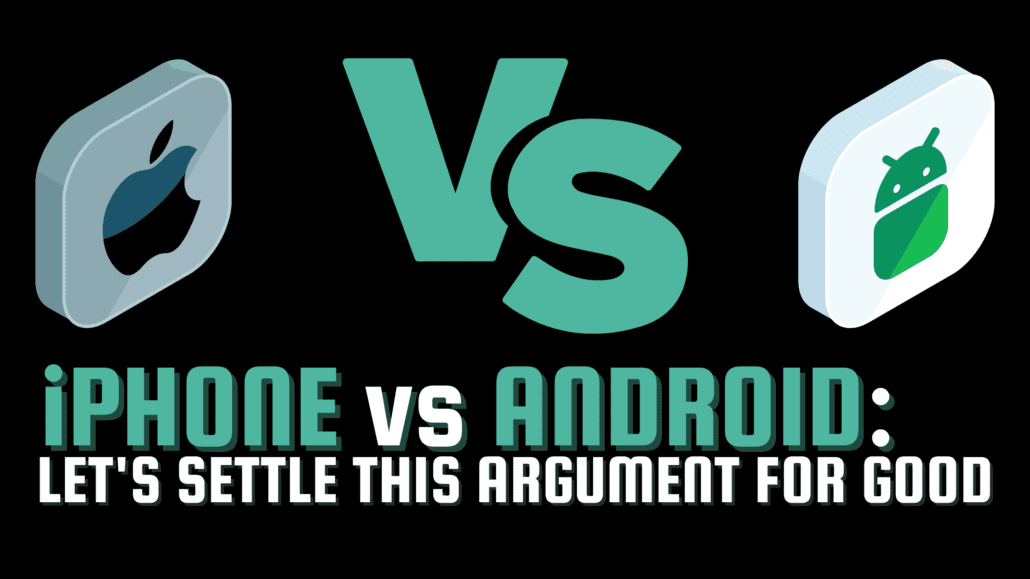
In the world of smartphones, two names stand out: iPhone and Android. These two have been at loggerheads for years, each boasting a legion of loyal users who swear by their chosen platform. But what sets them apart? Let’s dive into the nitty-gritty of the iPhone vs Android debate and see if we can settle this once and for all.
iPhone vs Android: The Key Differences
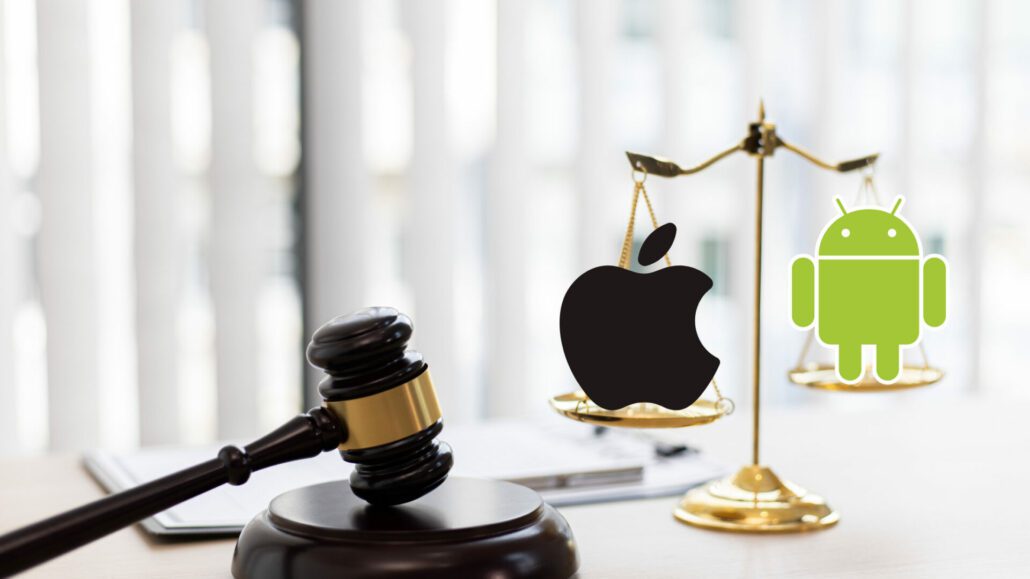
When it comes to the battle of iPhone vs Android, it’s not just about picking a side—it’s about understanding what each platform brings to the table.
Software
iPhone runs on iOS, Apple’s proprietary operating system, known for its smooth, user-friendly interface and seamless integration with other Apple products. On the other hand, Android, Google’s open-source platform, offers a high level of customization, allowing users to tweak their devices to their liking.
Hardware
Apple’s iPhones are renowned for their sleek design and high-quality build. Android phones, however, come in a wide variety of designs and price ranges, thanks to multiple manufacturers like Samsung, Google, and OnePlus.
App Availability
Both platforms have a vast array of apps available. However, it’s worth noting that many developers release apps on iOS first due to its standardized device specifications.
Customization
Android takes the cake in this department. The open-source nature of Android allows for extensive customization, from widgets and launchers to ROMs. iPhones, while offering a more streamlined experience, are less flexible in terms of customization.
Security
Apple’s closed ecosystem and stringent app vetting process make iPhones generally more secure. Android, while not inherently insecure, is more susceptible to malware due to its open nature and the ability to install apps from third-party sources.
User Experience: iPhone vs Android
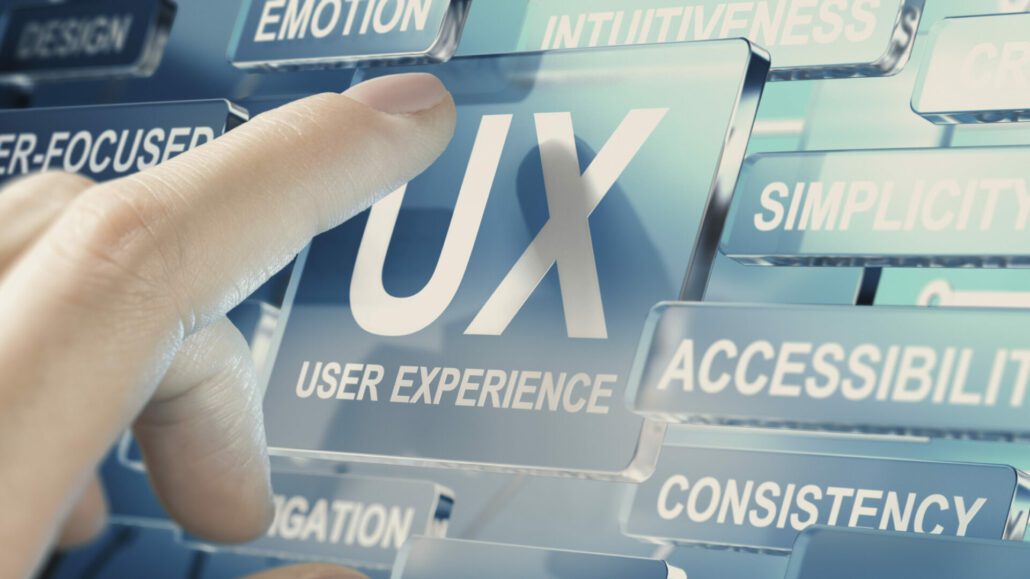
User experience is a crucial factor in the iPhone vs Android debate. It’s not just about the specs and features, but how these elements come together to create a seamless and enjoyable user experience.
Ease of Use
iPhones are often praised for their simplicity and ease of use. The interface is intuitive, and the learning curve is relatively low, even for those who aren’t tech-savvy. Android, with its myriad of customization options, can be a bit overwhelming for some. However, for tech enthusiasts who love tinkering with their devices, this is part of the appeal.
Interface Design
iOS boasts a clean, uniform design across all apps and settings. Android’s look and feel can vary significantly depending on the manufacturer and the custom skin they apply on top of the base Android OS. Some prefer the consistency of iOS, while others enjoy the diversity of Android.
My Personal Experience
As an iPhone 14 Pro user who switched from Android in 2021, I can attest to the allure of the iPhone. The transition was like a breath of fresh air. Everything just works on the iPhone, and the integration between the device and other Apple products is seamless. Plus, with all of Google’s ecosystem available on the iPhone, I didn’t lose years of data stored on Google’s servers. It’s the best of both worlds!
Performance Comparison: iPhone 14 Series vs Pixel 7 Series

Alright, let’s get down to business. You’re here because you want to know which phone performs better: the iPhone 14 series or the Pixel 7 series. Well, buckle up, because we’re about to dive deep into the world of smartphone performance.
CPUs
First off, let’s talk about the brains of these devices. The iPhone 14 series is powered by Apple’s A16 Bionic chip, while the Pixel 7 series runs on Google’s Tensor SoC. Both of these chips are no slouch when it comes to performance. They’re designed to handle everything from scrolling through your social media feeds to playing graphics-intensive games without breaking a sweat. However, the A16 Bionic chip in the iPhone 14 Pro models might have a slight edge due to its advanced technology.
Operating Systems
Now, onto the software. The iPhone 14 series runs on iOS, and the Pixel 7 series runs on Android 13. Both of these operating systems are optimized to work seamlessly with their respective hardware. iOS is often praised for its smoothness and stability, while Android is loved for its flexibility and customization options. It’s like choosing between a well-oiled machine and a Swiss Army knife – both are great, but in different ways.
Cameras
Let’s not forget about the cameras. The iPhone 14 Pro models boast a whopping 48MP main camera, promising to capture photos and video in stunning detail. On the other hand, the Pixel 7 series, while having a lower megapixel count, is renowned for its advanced computational photography features. It’s like comparing a high-end DSLR camera with a professional photographer – the former offers superior hardware, while the latter brings skill and technique to the table.
As for battery life, both series promise to last all day, but the exact performance can vary depending on how you use your phone. It’s like a marathon – the runner’s endurance is crucial, but the pace and strategy also play a significant role.
Stylish or Rugged? The Choice is Yours!
In the end, choosing between the iPhone 14 series and the Pixel 7 series is like choosing between a sleek sports car and a rugged off-road vehicle. Both are excellent in their own right, and the best choice depends on what you value most. Are you after raw power and top-notch hardware? Or do you value flexibility and the ability to customize? The choice, as always, is yours.
iMessage vs Google Messages
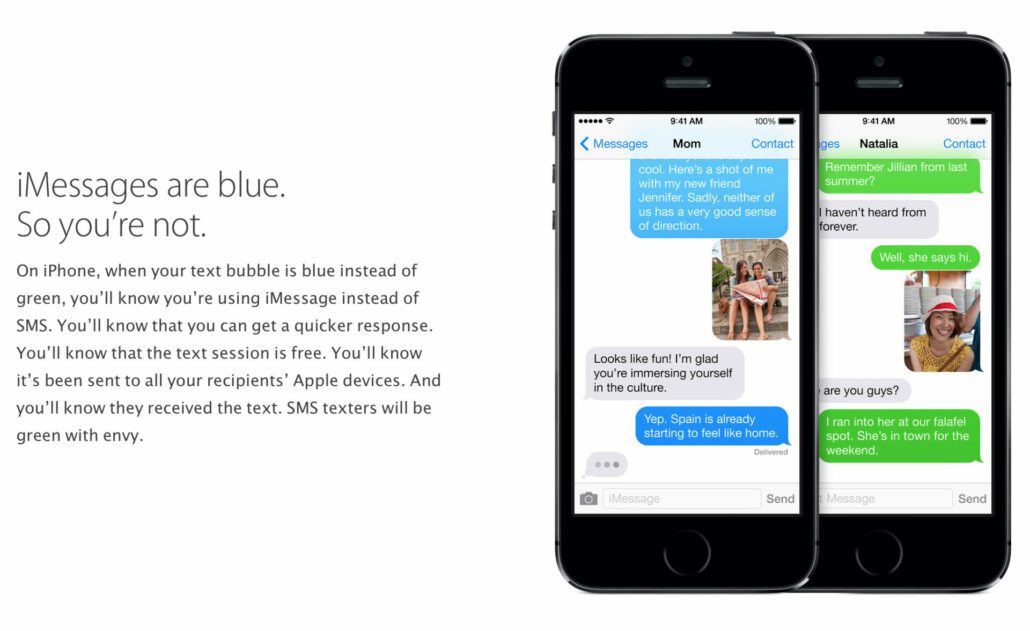
Messaging apps are a crucial part of our digital lives, and both iPhone and Android have their native solutions: iMessage for iPhone and Google Messages for Android.
iMessage
iMessage is Apple’s built-in messaging app, allowing users to send texts, photos, videos, and more to other iPhone users over Wi-Fi or cellular data. One of the standout features of iMessage is its end-to-end encryption, ensuring that your messages are secure and can only be read by the intended recipient. It’s also integrated seamlessly across all Apple devices, so you can start a conversation on your iPhone and continue it on your Mac or iPad. Plus, iMessage supports a range of fun and useful features like Animoji, Memoji, message effects, and the ability to send money through Apple Pay. However, iMessage is exclusive to Apple devices. If you’re communicating with Android users, you’ll have to revert to standard SMS/MMS, which don’t support the advanced features of iMessage.
Google Messages
Google Messages is the default messaging app on most Android devices. It supports SMS, MMS, and the newer RCS (Rich Communication Services) format. RCS is the next generation of SMS, offering features like read receipts, typing indicators, and high-quality media sharing. Google Messages supports RCS, though its availability may depend on your carrier. One of the convenient features of Google Messages is the ability to send and receive messages from your computer via the Messages for web feature. It also integrates with Google Assistant, allowing you to send texts, share videos, and more using voice commands. However, some features of Google Messages, like RCS, depend on carrier support, which can be inconsistent.
Pros and Cons
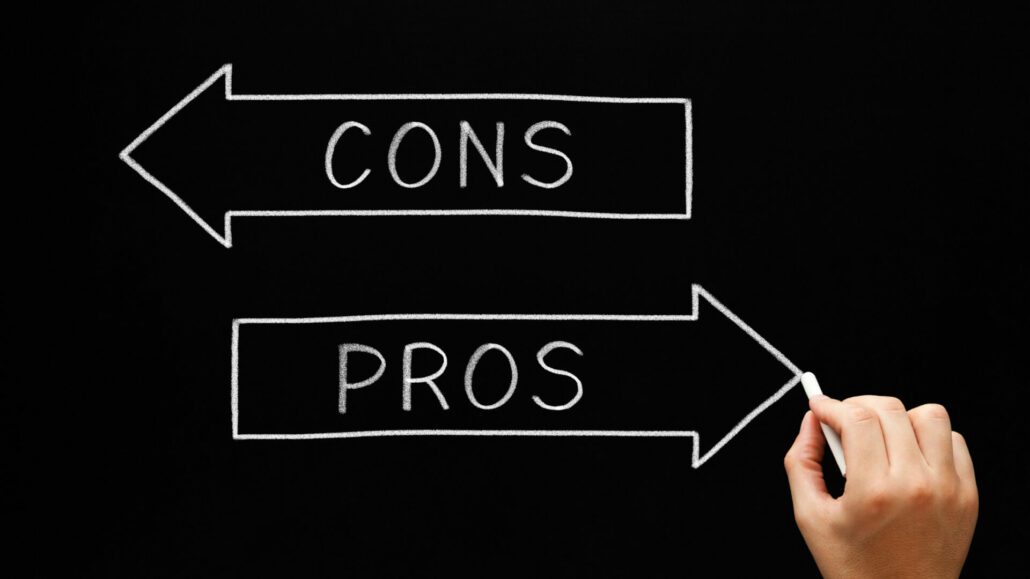
When it comes to iPhone vs Android, user reviews and expert opinions can provide valuable insights. Here’s a summary of the pros and cons of each platform based on these perspectives:
iPhone Pros:
- Seamless Ecosystem: Users and experts often praise the seamless integration between iPhone and other Apple devices. If you own a Mac, iPad, or Apple Watch, the synchronization is almost flawless.
- Consistent Updates: iPhones receive regular and timely software updates. This not only keeps the device running smoothly but also ensures that security patches are promptly applied.
- Quality Apps: Many users note that apps on iOS are often of higher quality. Developers tend to release new apps and updates on iOS first due to its standardized device specifications.
iPhone Cons:
- Price: iPhones are generally more expensive than most Android devices. This can be a significant barrier for many potential users.
- Limited Customization: While the simplicity of iOS is a plus for many, some users feel restricted by the lack of customization options compared to Android.
- Closed Ecosystem: The closed nature of iOS means that you’re mostly restricted to using Apple’s apps and services. While this ensures a smooth and secure experience, it can be limiting for some users.
Android Pros:
- Customization: Android’s biggest strength, according to many users and experts, is its customization options. You can change almost everything about the user interface, making it a playground for tech enthusiasts.
- Variety of Devices: Android powers devices from various manufacturers, offering a wide range of choices in terms of design, features, and price.
- Expandable Storage: Many Android devices offer expandable storage, a feature that iPhones lack. This can be a significant advantage for users who need a lot of storage space.
Android Cons:
- Fragmentation: The variety of Android devices and manufacturers means that software updates are often inconsistent and delayed, leaving some users with outdated software.
- Quality of Apps: While the Google Play Store has a vast array of apps, some users and experts note that the quality of apps can sometimes be lower compared to iOS.
- Security: While Android is not inherently insecure, the open nature of the platform and the ability to install apps from third-party sources can increase the risk of malware.
iPhone vs Android Memes: Public Perception Through Humor
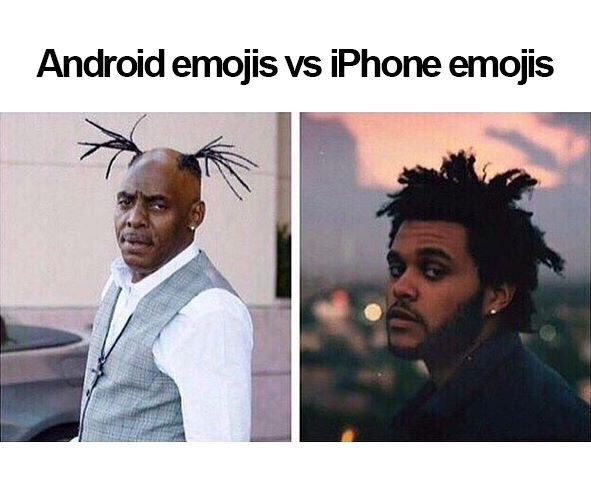
In the age of social media, memes have become a popular way to highlight the differences between iPhone and Android. They reflect public perception and often humorously exaggerate the stereotypes associated with both platforms.
For instance, iPhone users are often depicted as being part of an exclusive club (sheep) due to the higher price tag of Apple devices. Android users, on the other hand, are often portrayed as tech-savvy individuals (nerds) who value customization and freedom of choice.
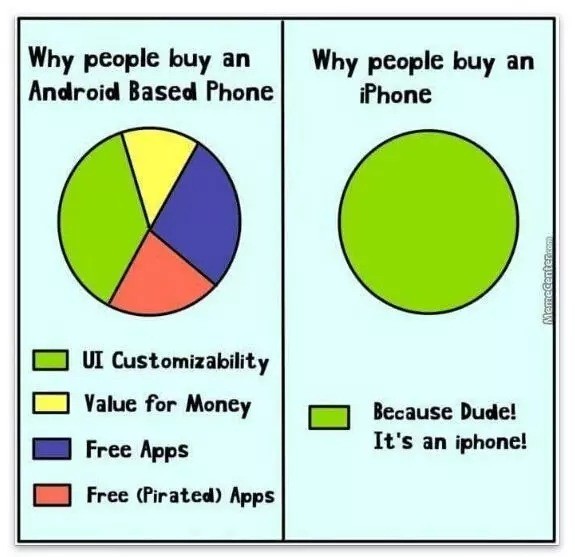
These memes, while meant for a laugh, do underscore the fundamental differences between the two platforms and the reasons why some people prefer one over the other.
Conclusion
In the end, the choice between iPhone and Android comes down to personal preference. Both platforms have their strengths and weaknesses, and what works best for you depends on your needs, budget, and taste.
iPhone offers a seamless, user-friendly experience, excellent hardware, and top-notch security. Android, on the other hand, provides a high level of customization, a wide range of devices to choose from, and flexibility that tech enthusiasts love.
As someone who has used both platforms, I can say that there’s no clear winner in the iPhone vs Android debate. It’s all about finding the platform that fits your lifestyle and meets your needs.
So, are you team iPhone or team Android? I’d love to hear your thoughts. Share your experiences and let’s keep the conversation flowing in the comments below!
Tony has a bachelor’s degree from the University of Phoenix and over 14 years of writing experience between multiple publications in the tech, photography, lifestyle, and deal industries.

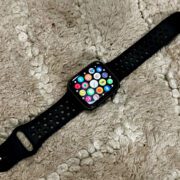
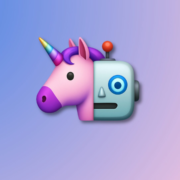
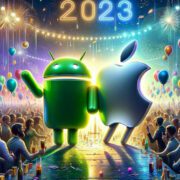
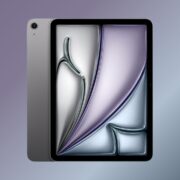
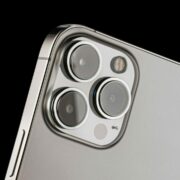





Leave a Reply
Want to join the discussion?Feel free to contribute!